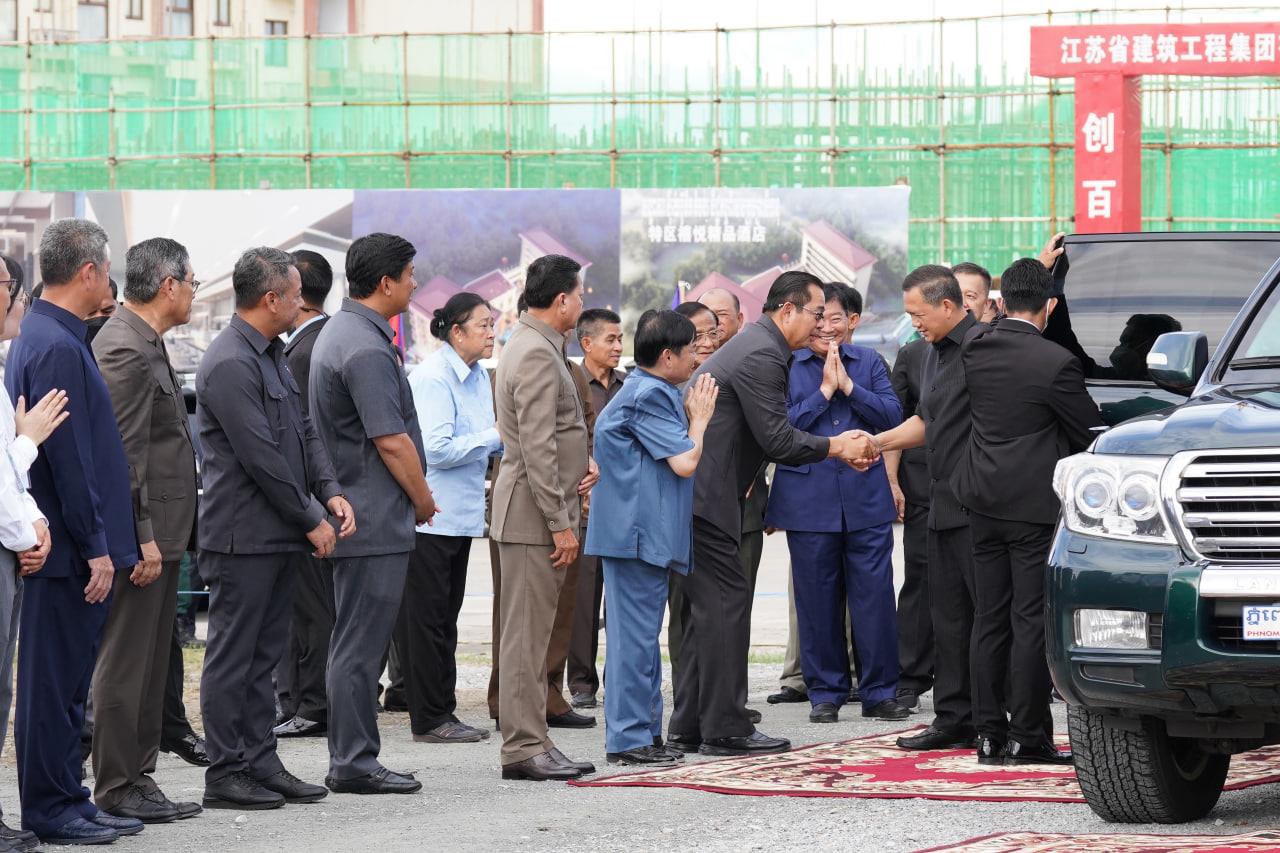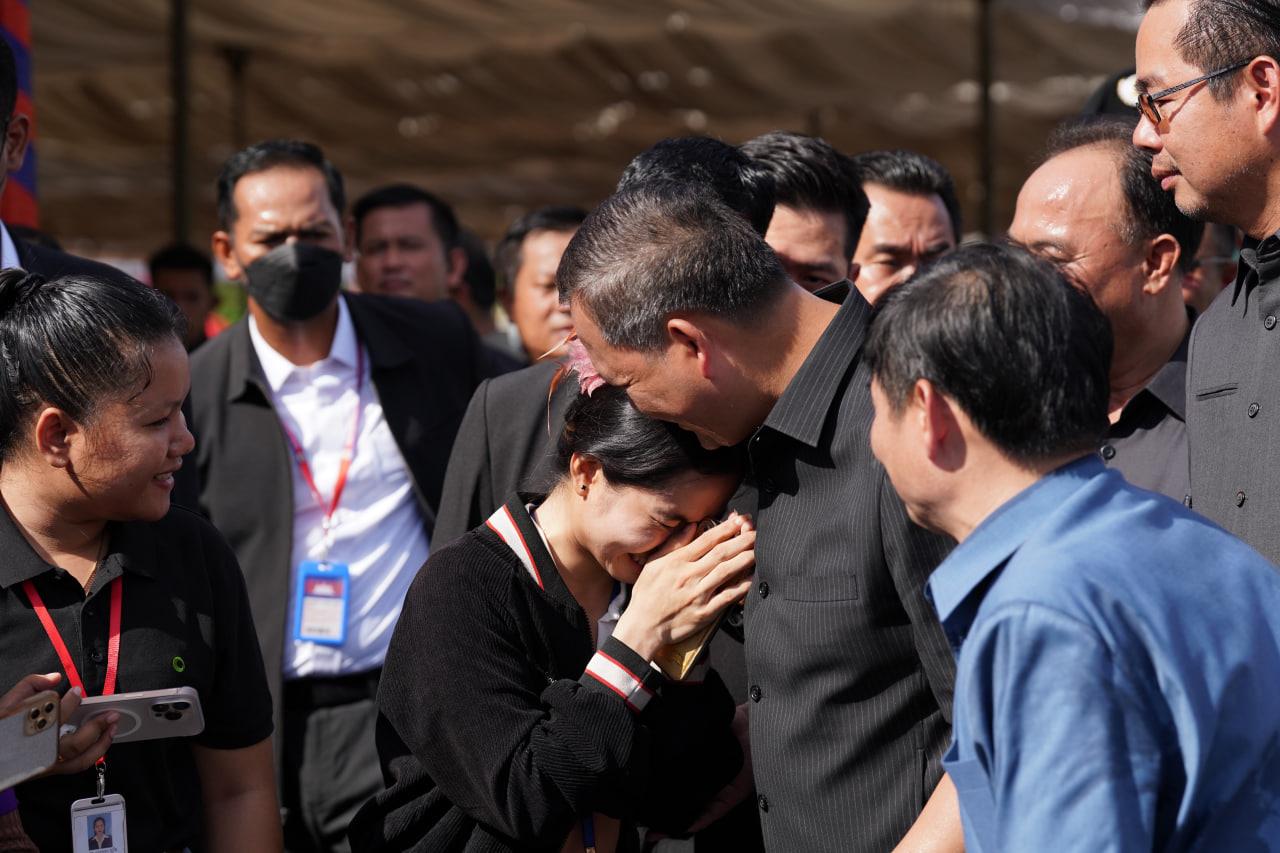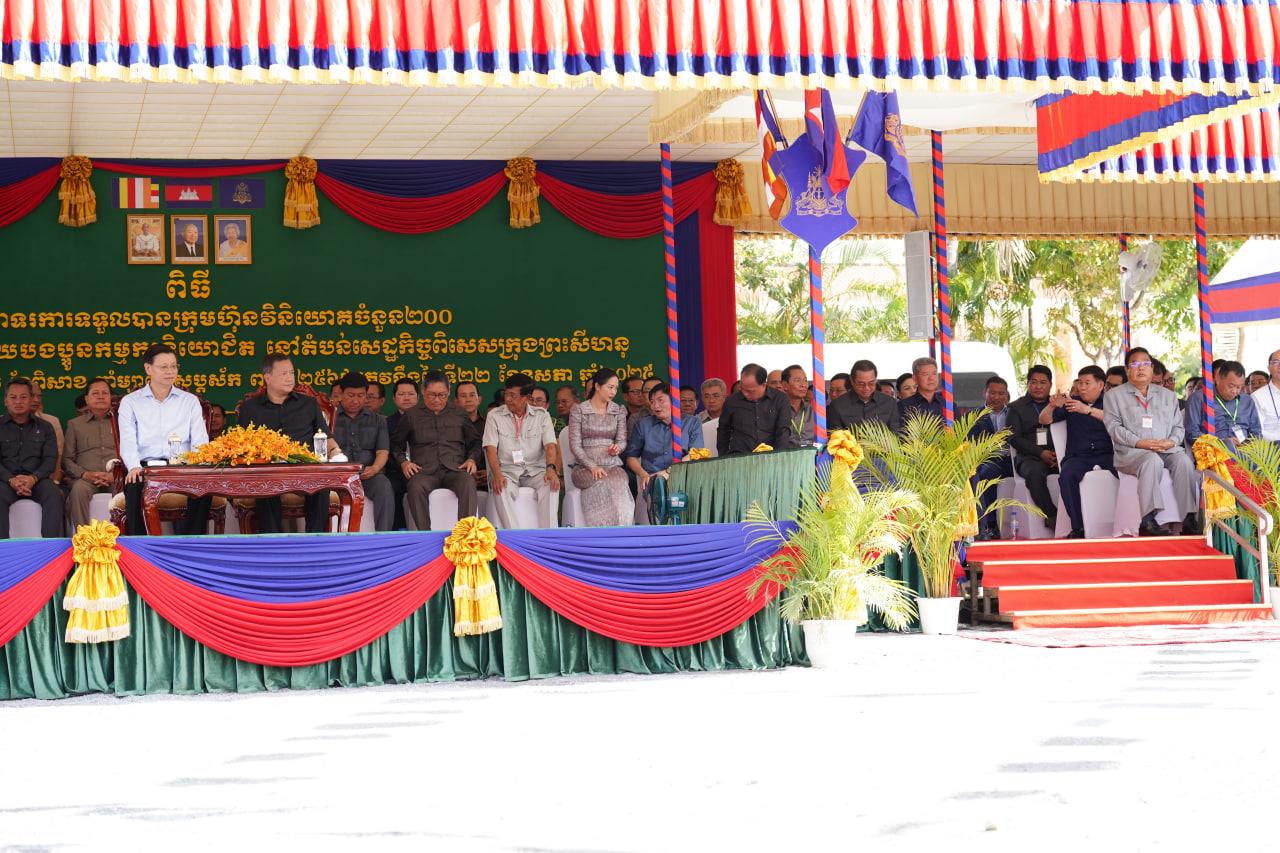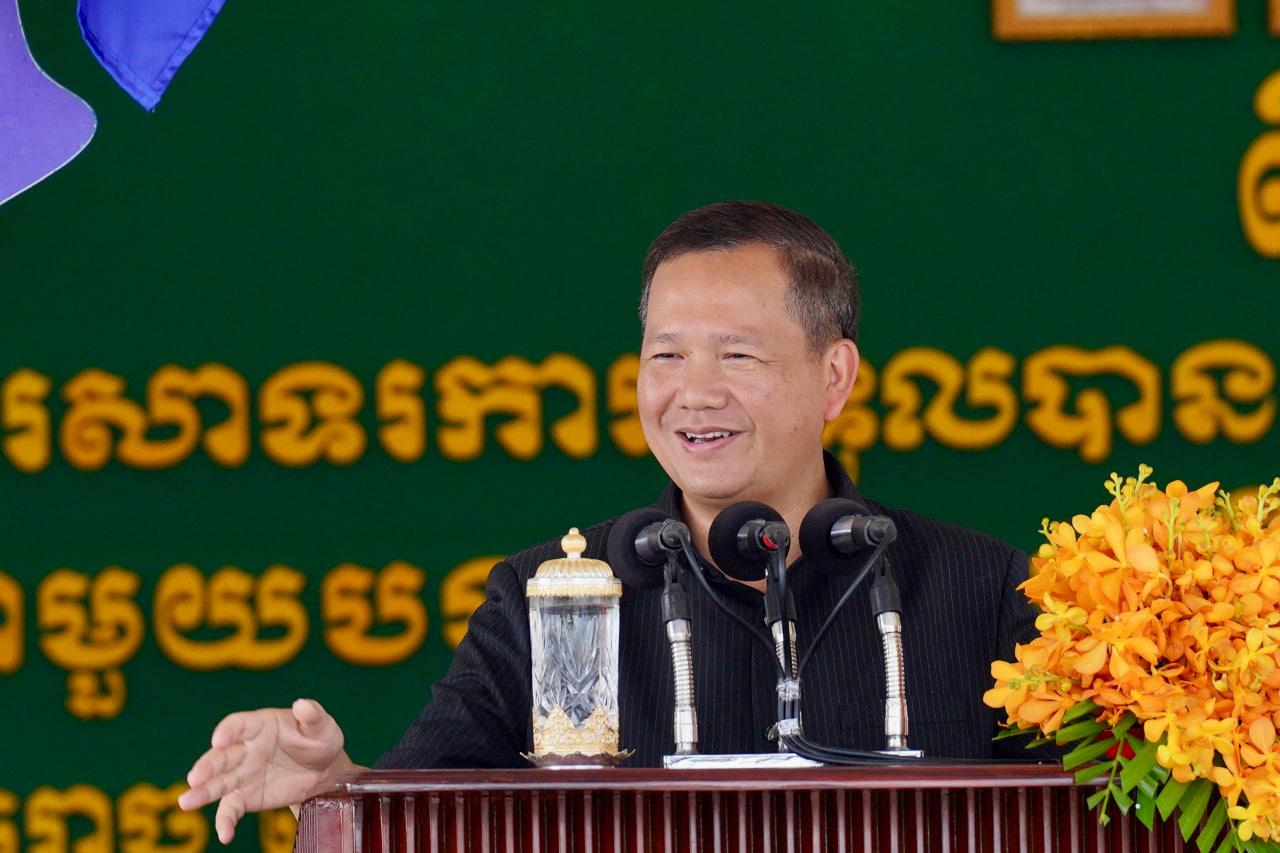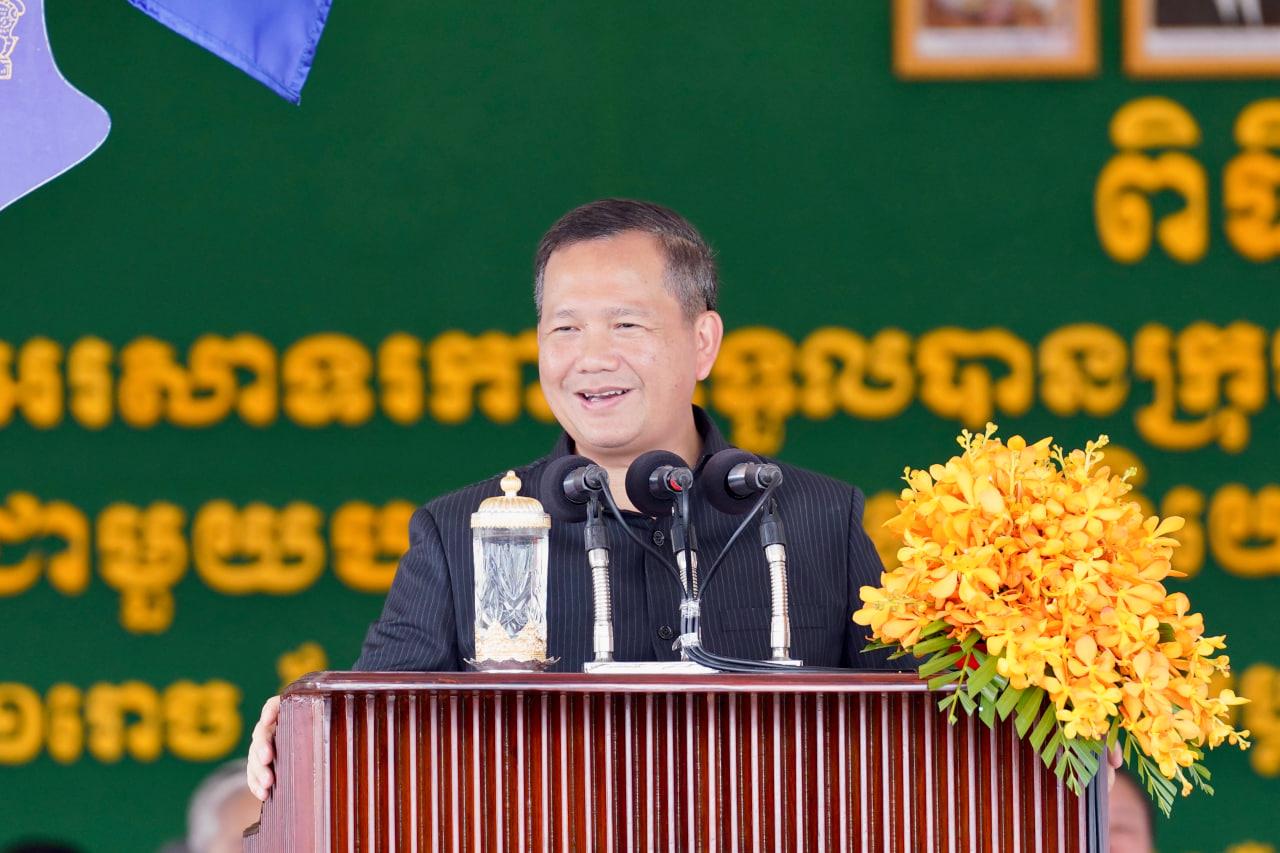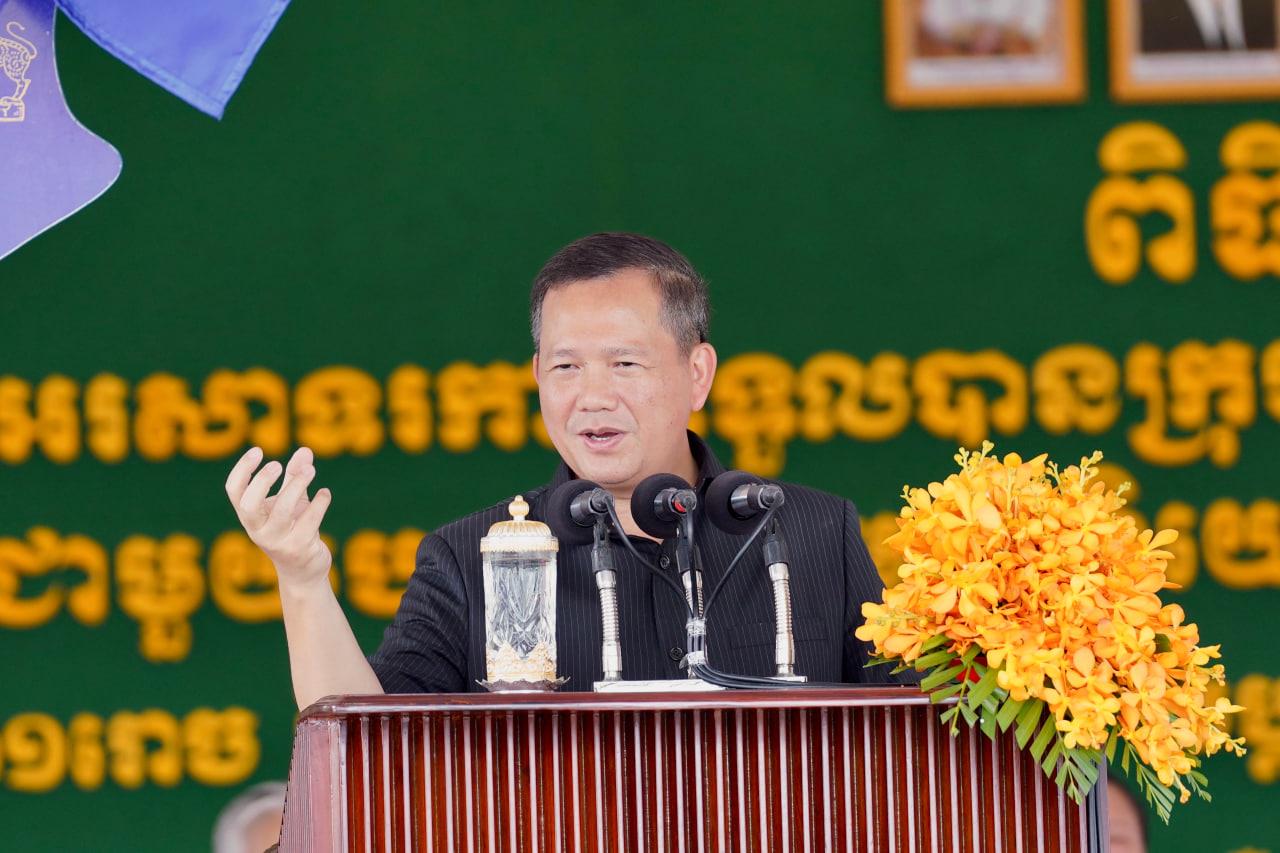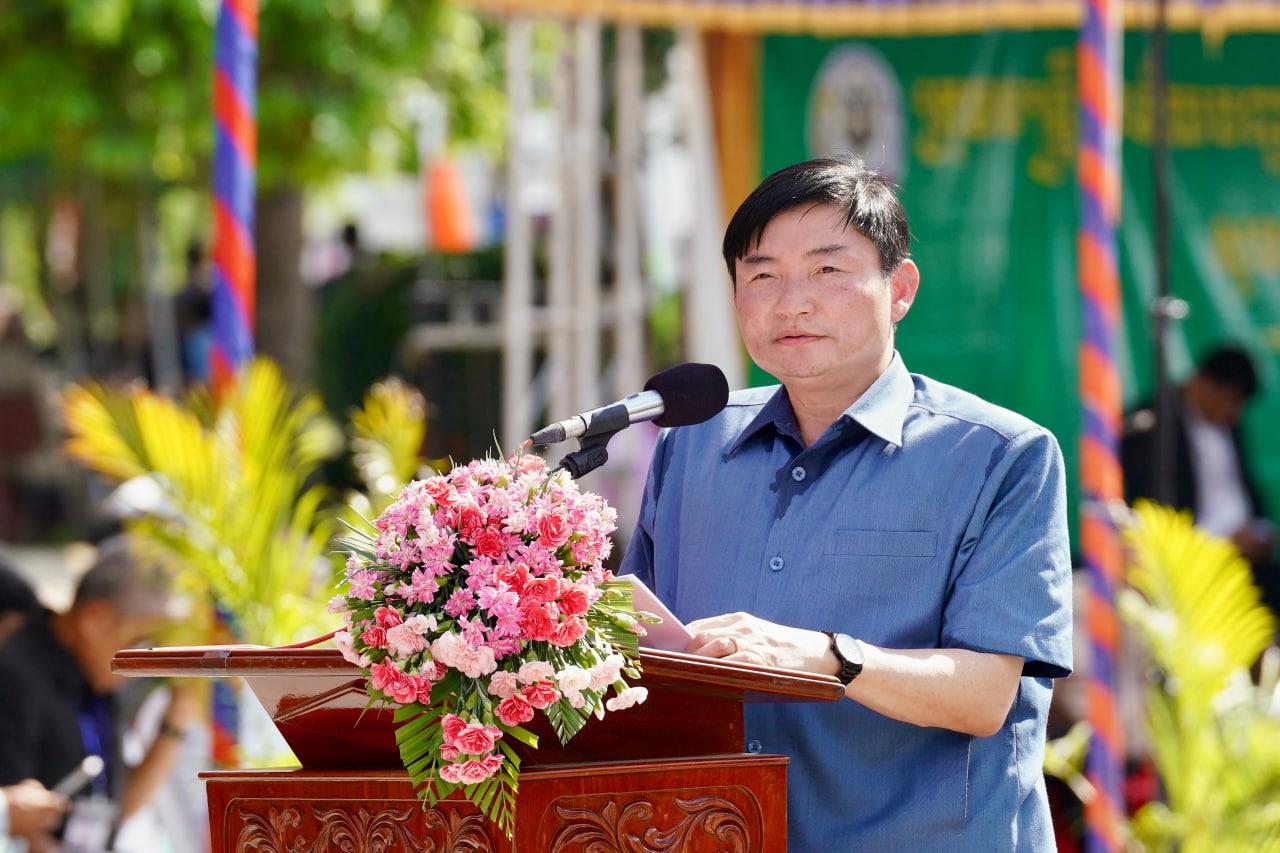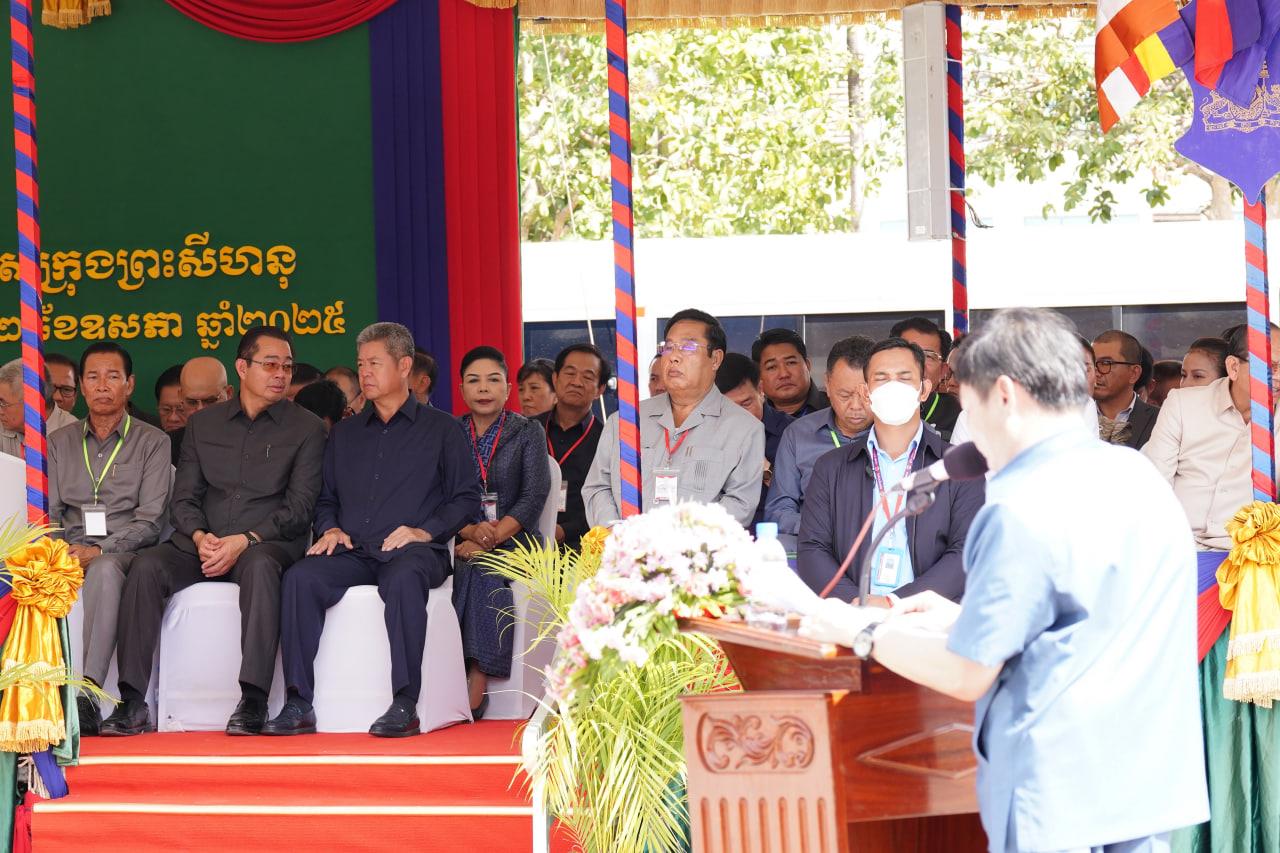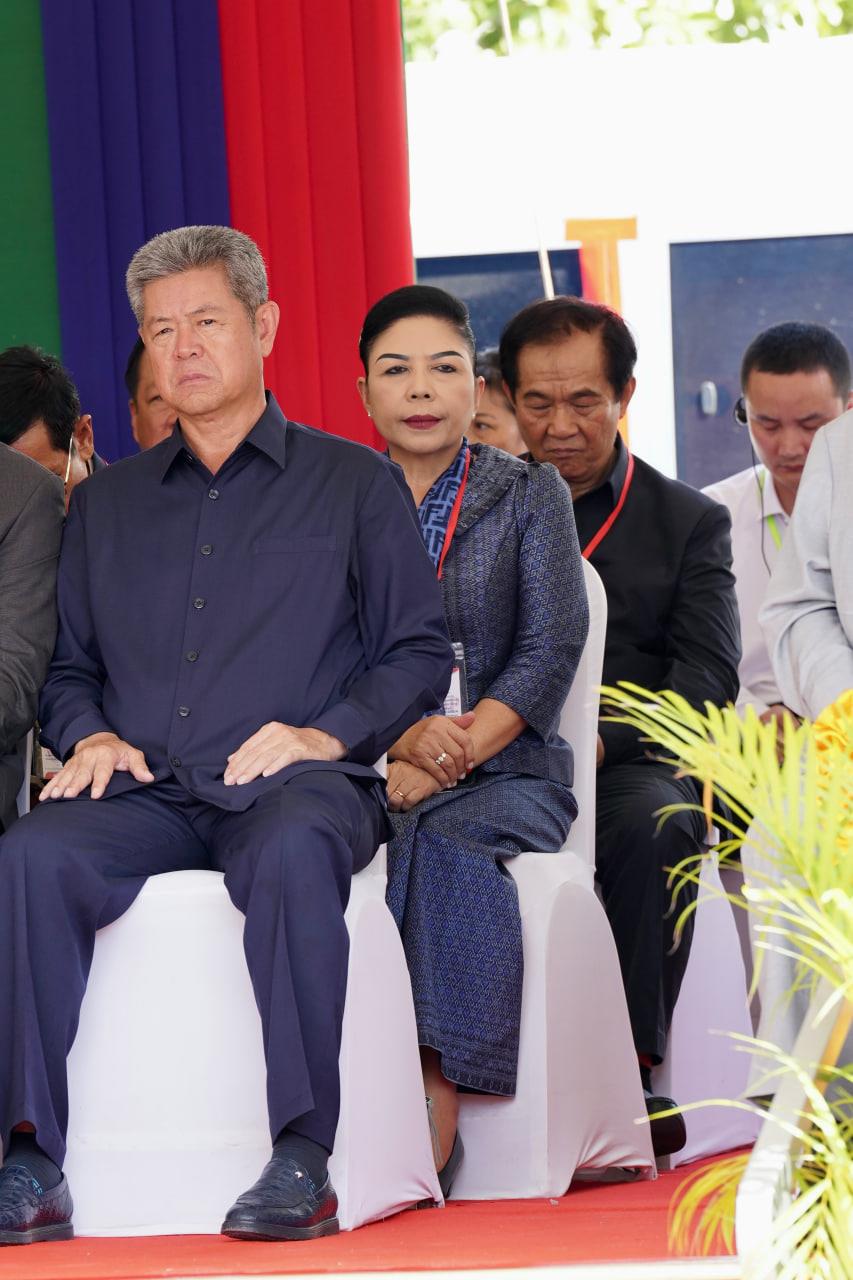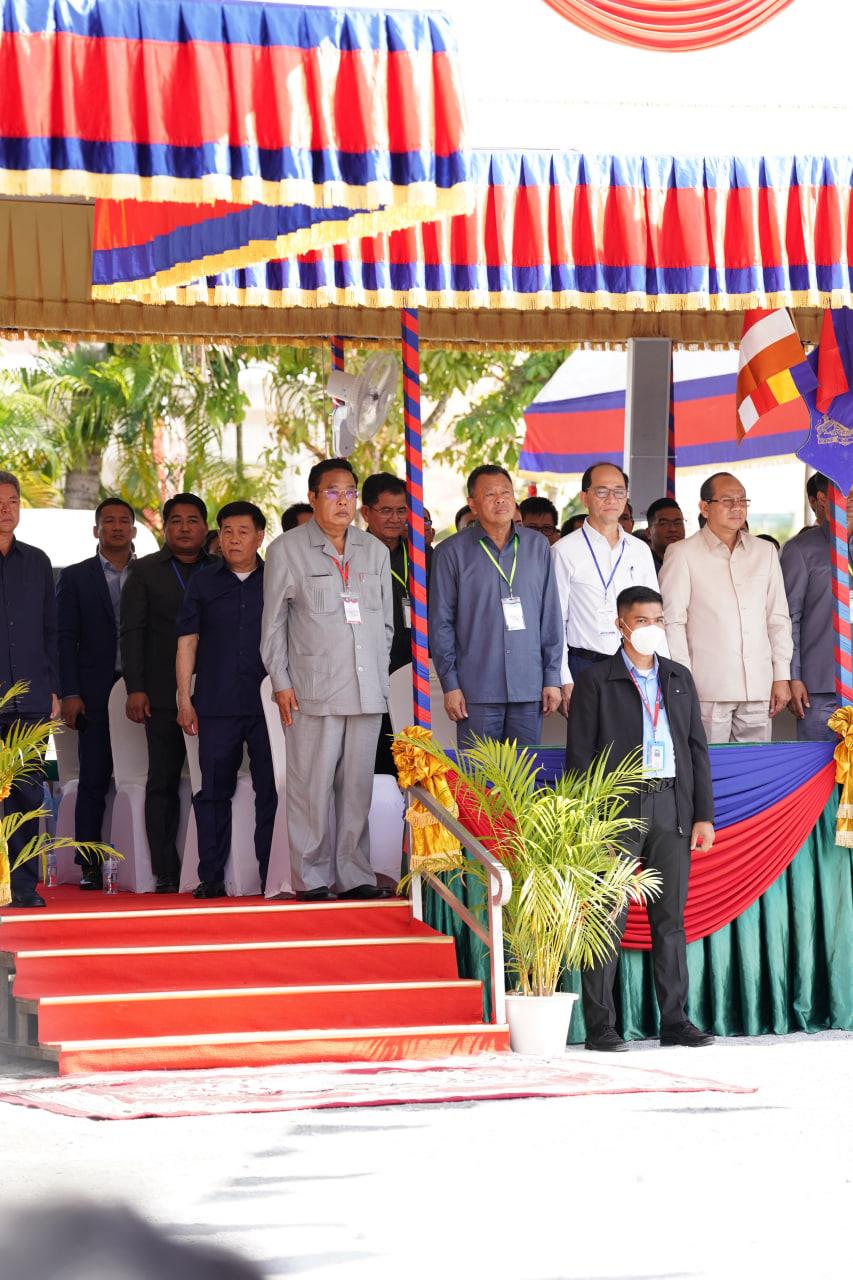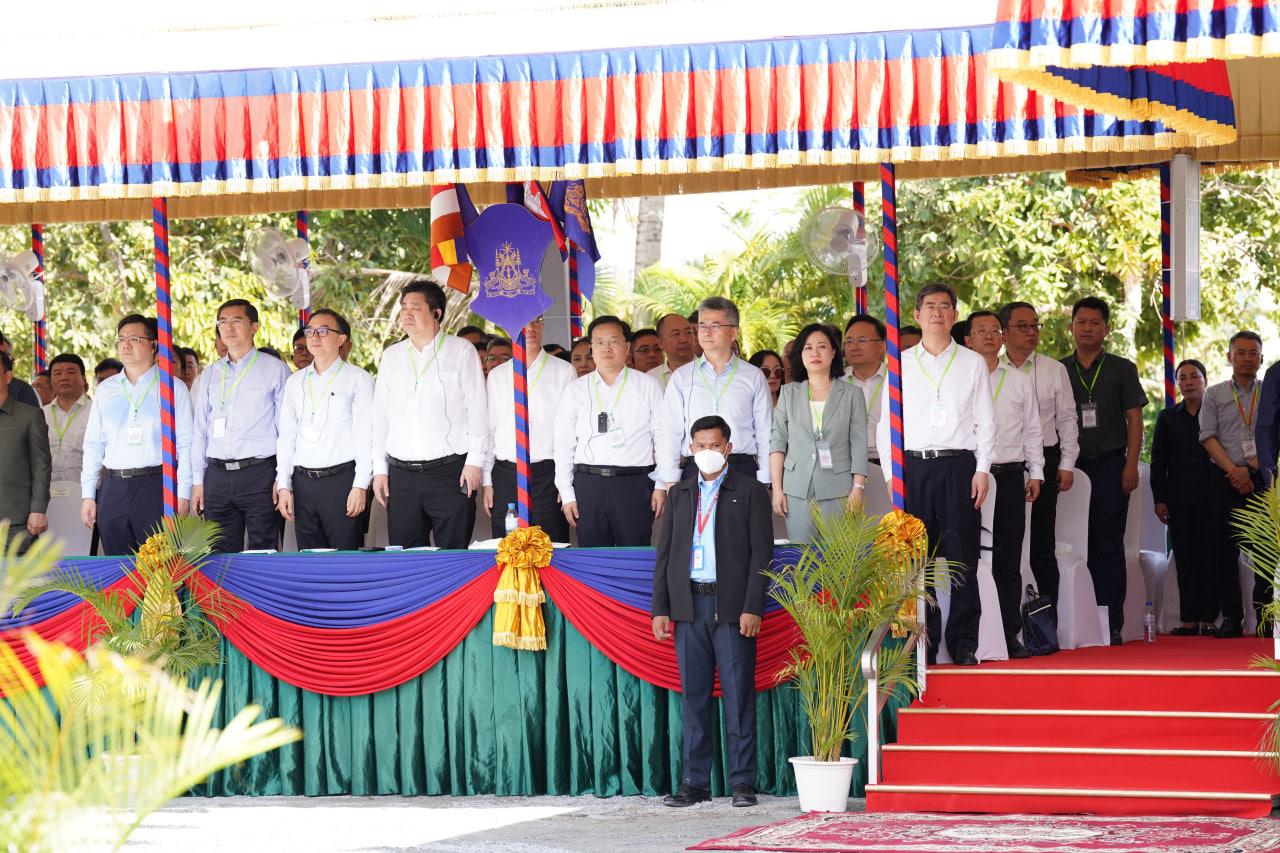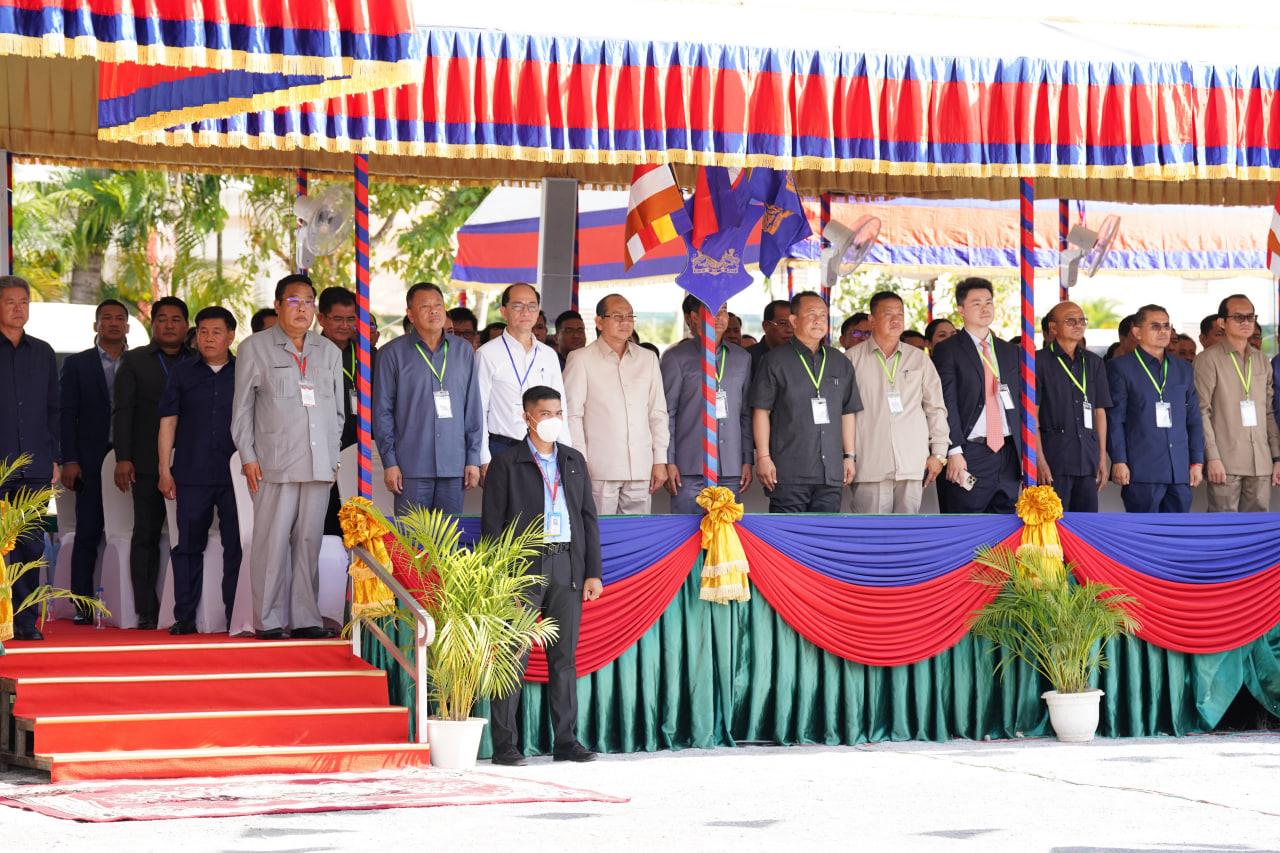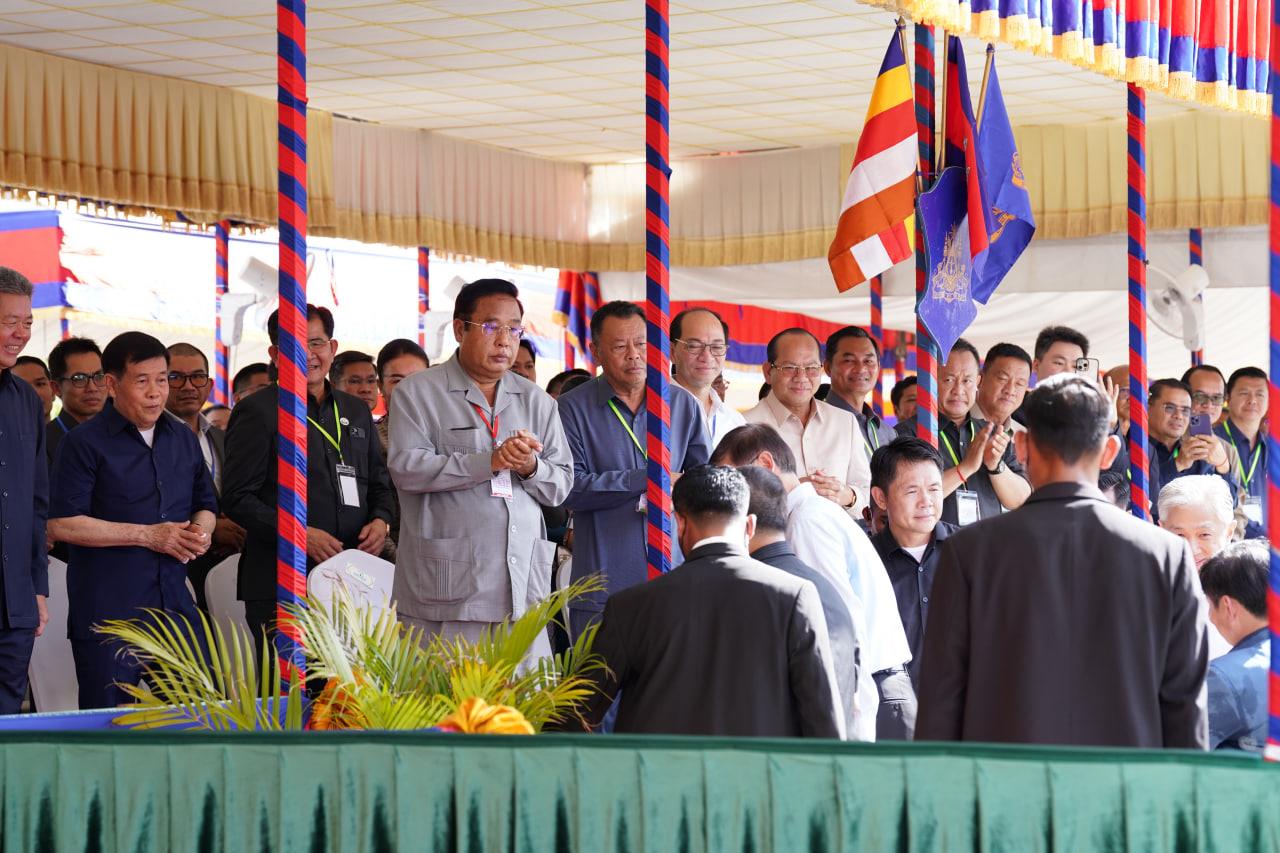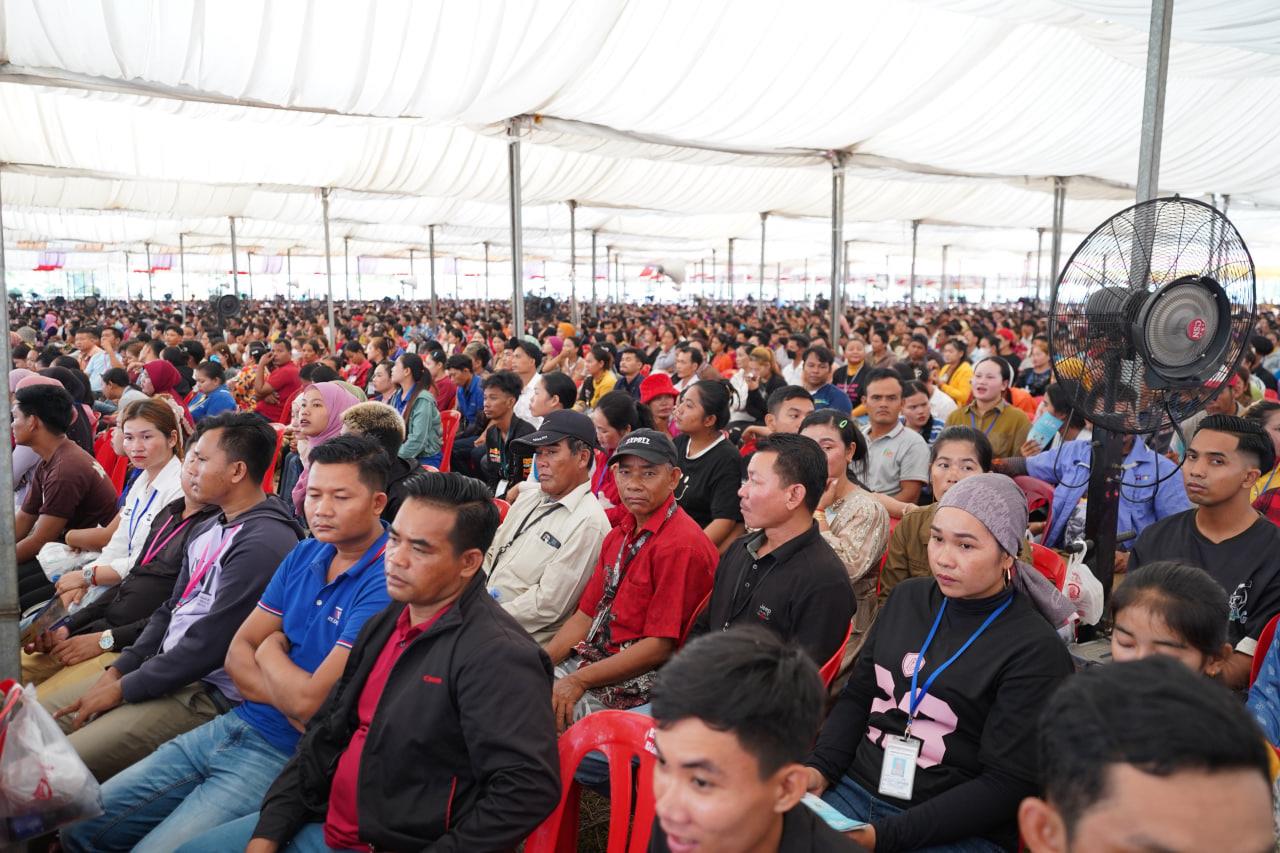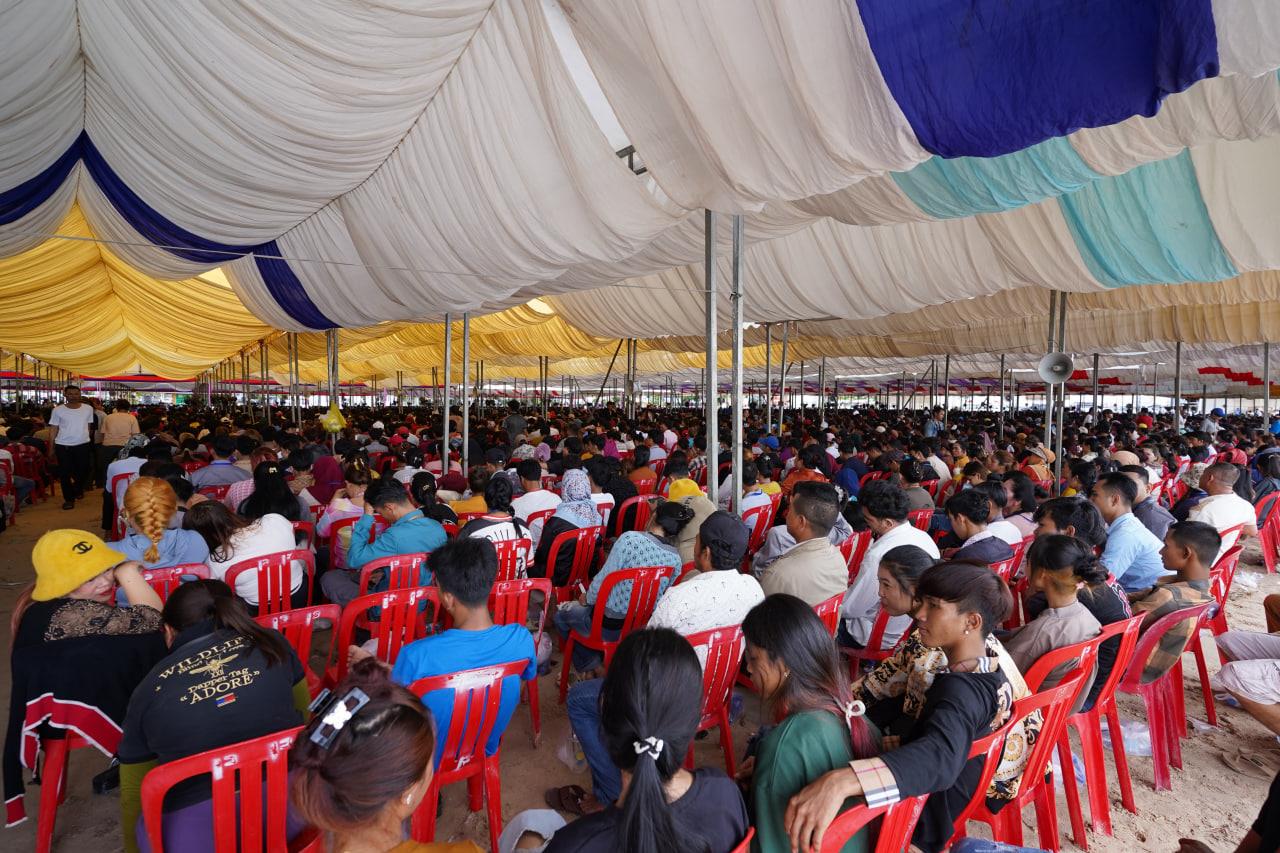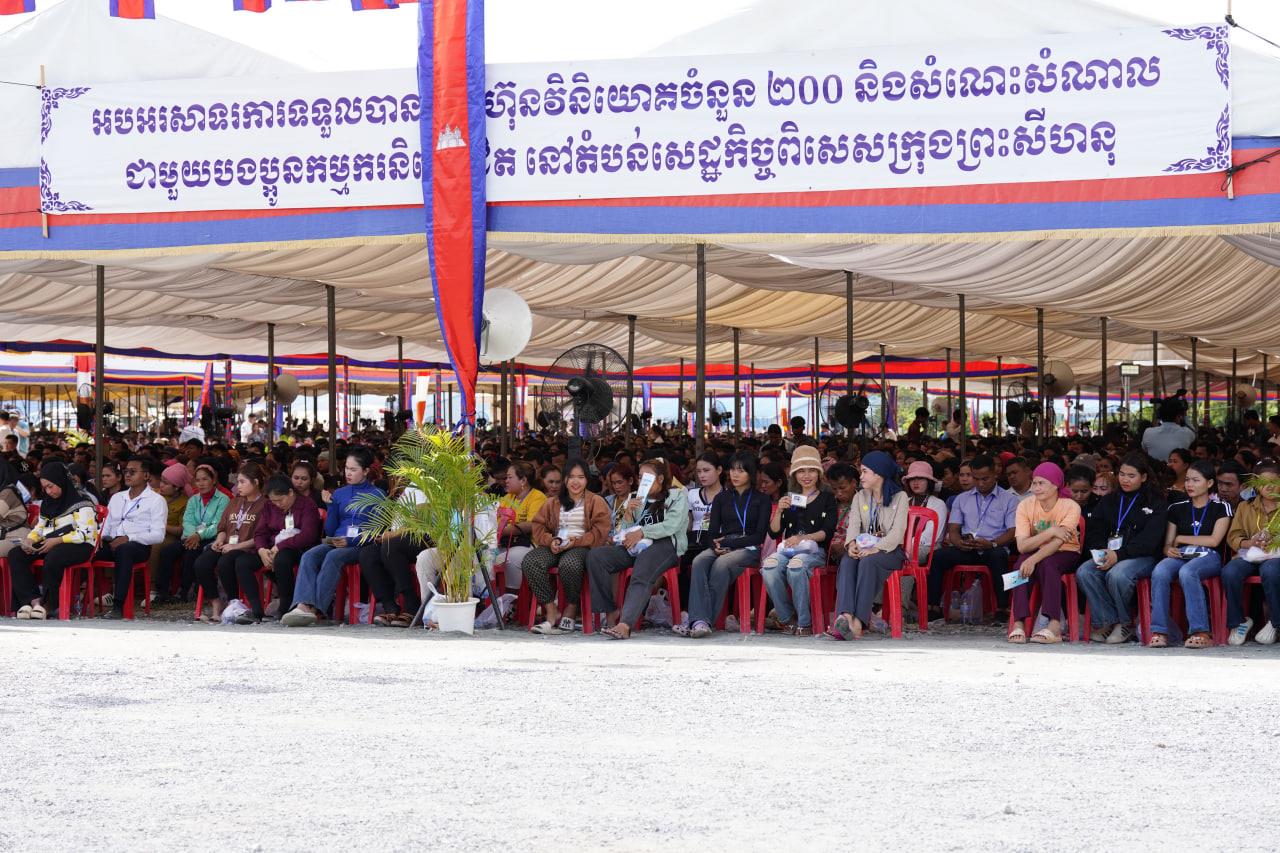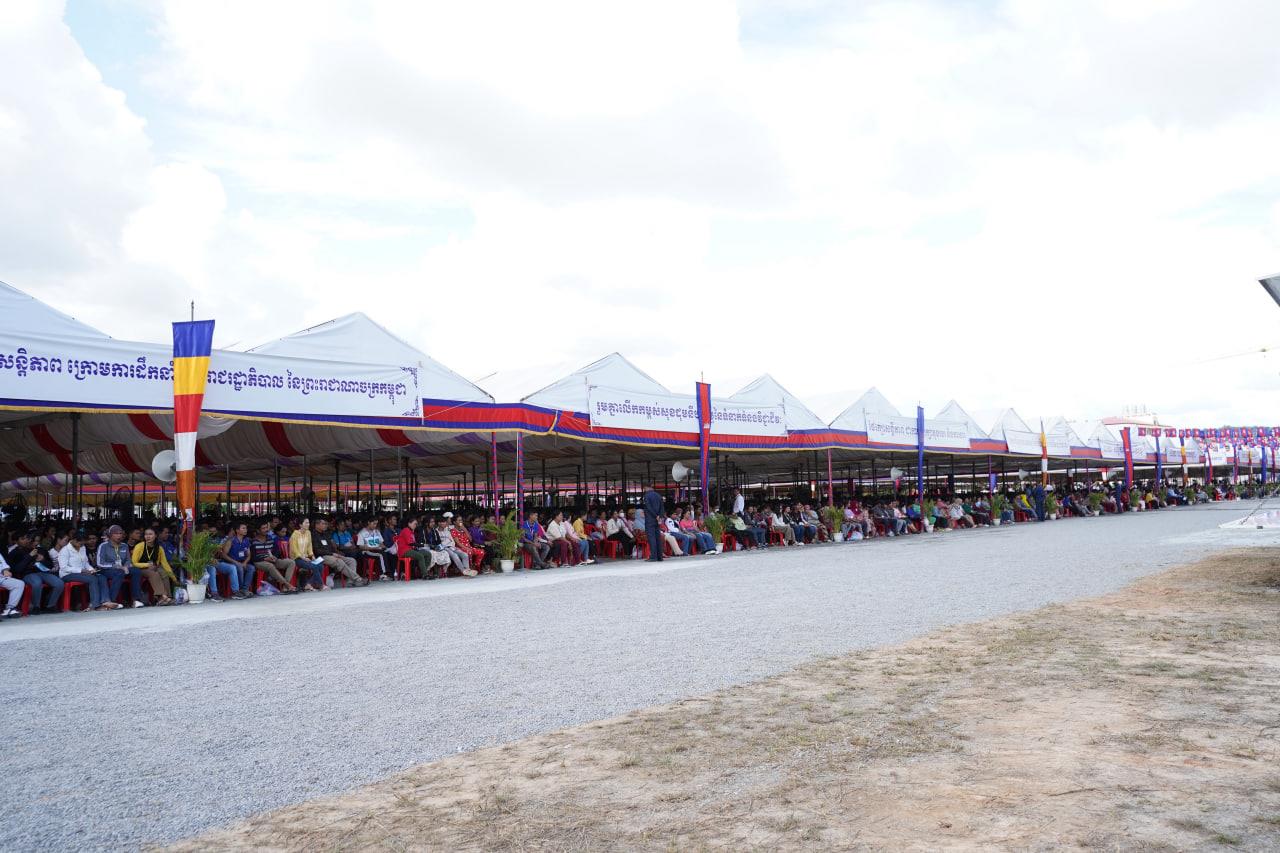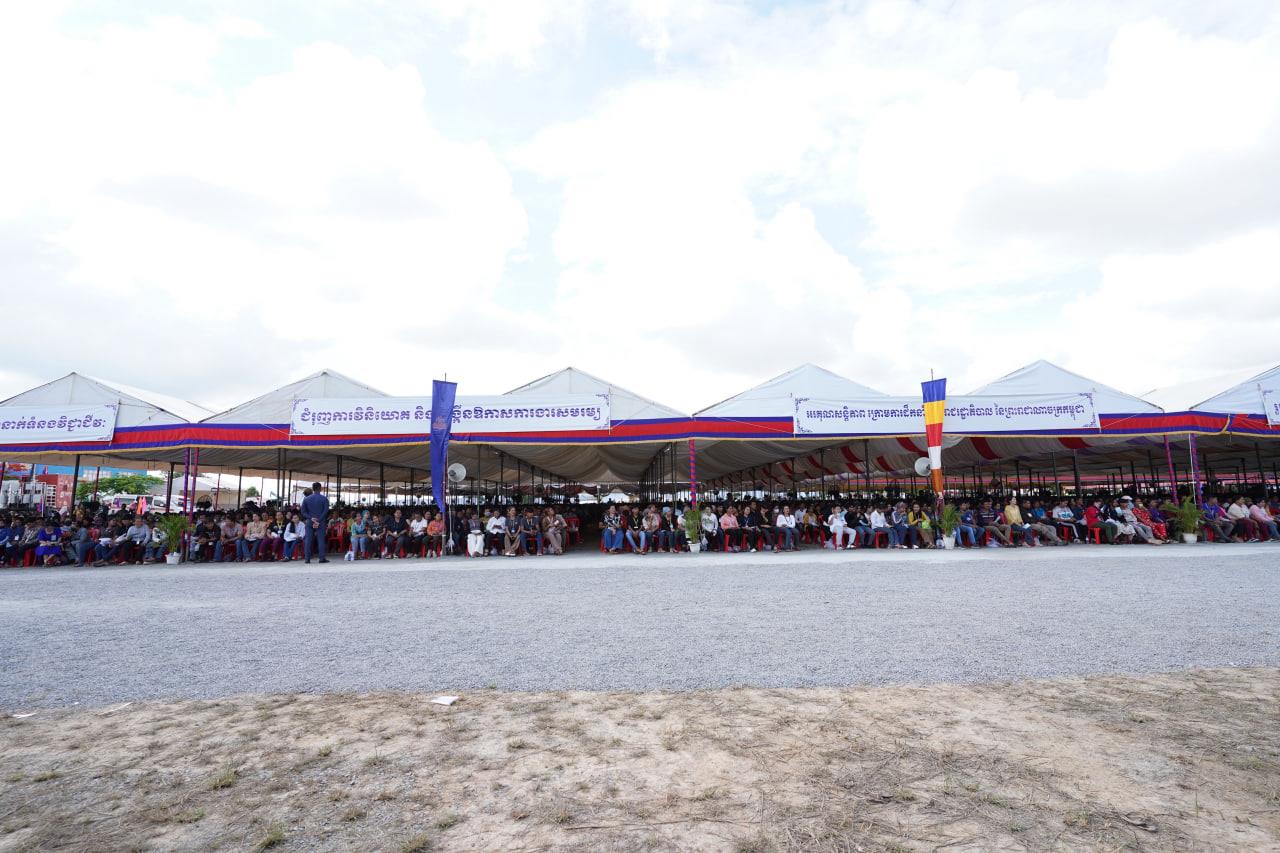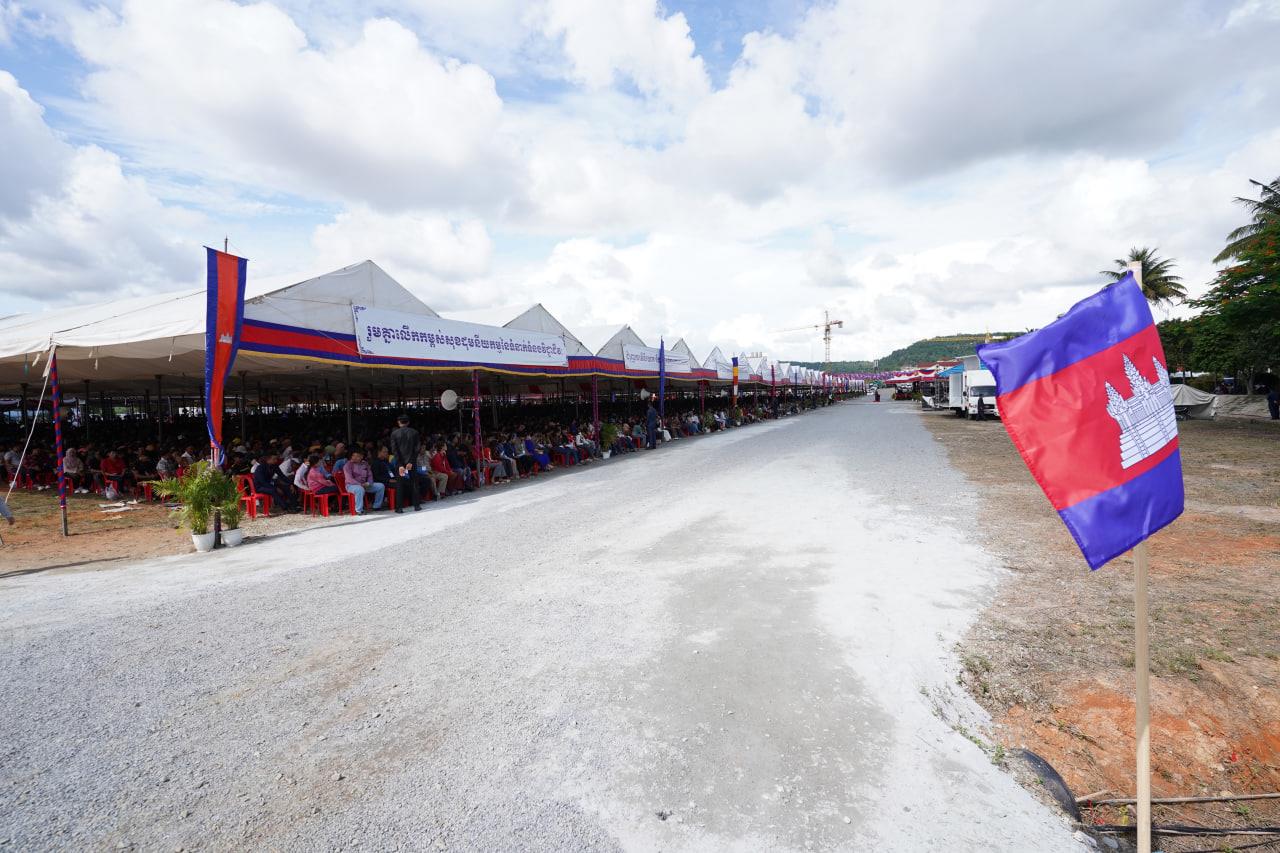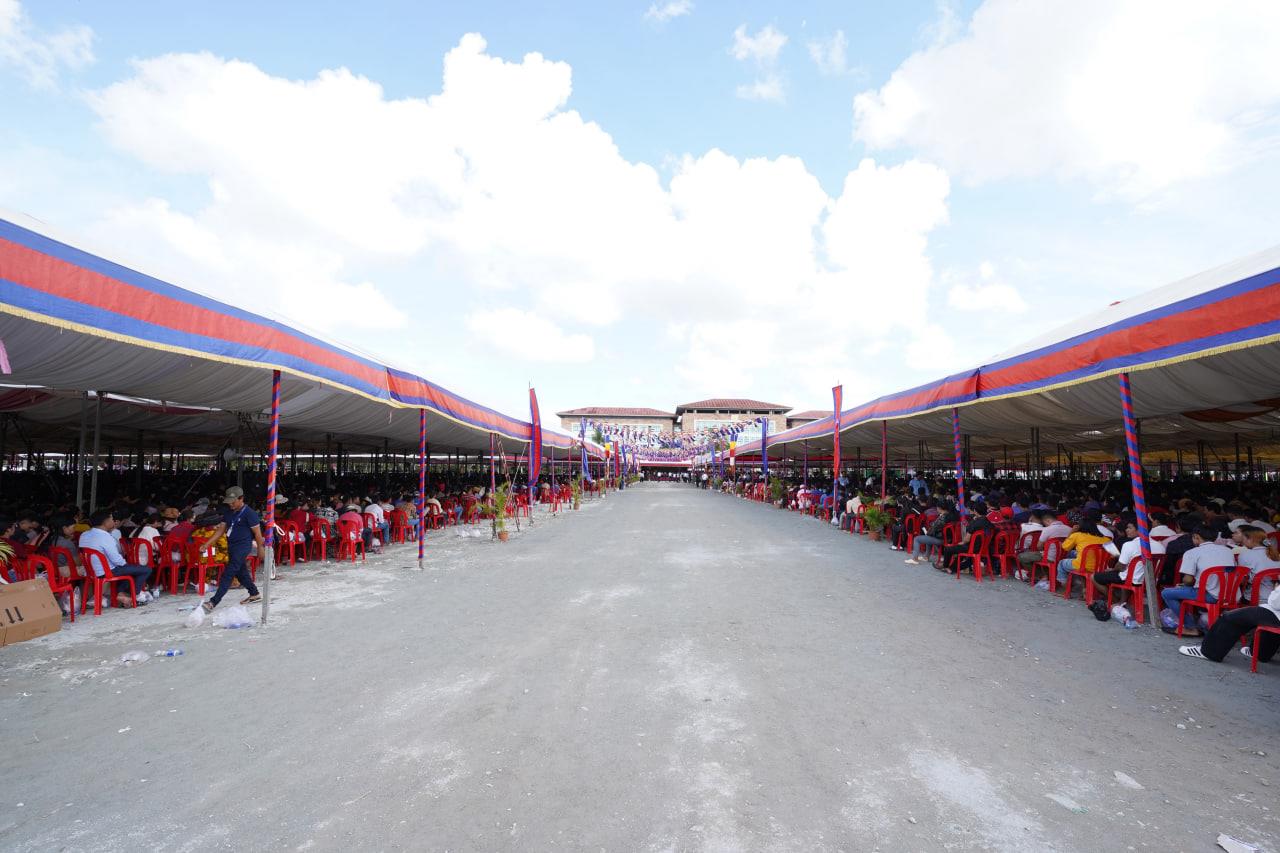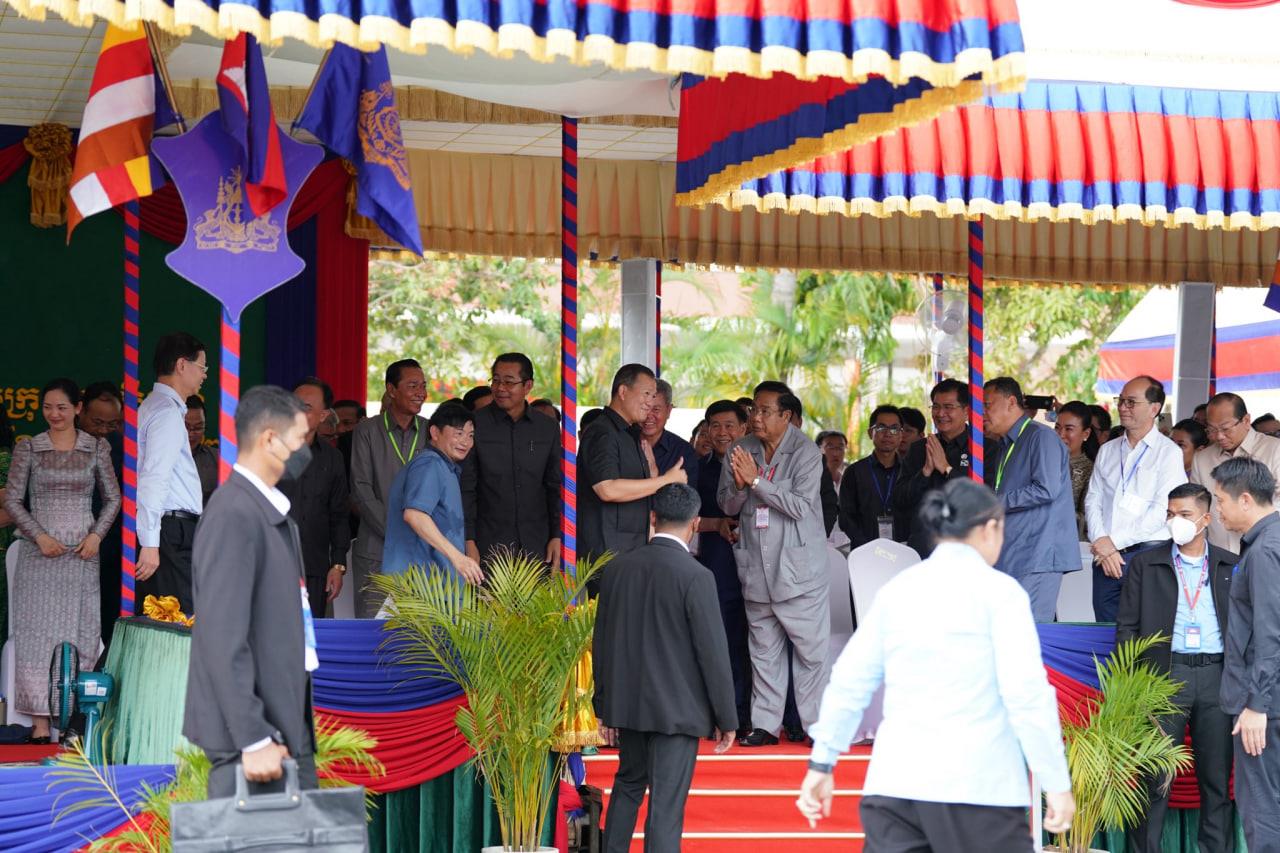(Sihanoukville): Cambodian Prime Minister Hun Manet affirmed that the Royal Government is actively considering the further development of connectivity infrastructure—including roads, railways, and waterways—to improve the transport of goods to Preah Sihanouk Province.
The premier spoke on Thursday (May 22) during his meeting with more than 30,000 workers in the Sihanoukville Special Economic Zone.
Samdech Thipadei noted that Sihanoukville is a key economic zone and represents Cambodia’s second economic pole after Phnom Penh. The steady inflow of investment into the SSEZ has significantly contributed to strengthening the provincial economy. As a result, the government is now prioritising further infrastructure development, particularly in road and waterway connectivity.
“We are currently enhancing connectivity infrastructure, including the reinforcement of the railway, dredging of the Funan Techo Canal, construction of National Roads 48 and 10 to link with the fifth economic pole, and the development of master plans to accelerate growth in the coastal provinces—especially Preah Sihanouk. Additionally, we are upgrading our port facilities to enable more cargo ships to dock directly in Cambodia, which will help reduce shipping costs,” the premier underscored.
Samdech Thipadei continued that, recently, a cargo ship successfully sailed directly from China to Cambodia without the need to stop at ports in neighbouring countries as was previously the case. This milestone was made possible by improvements to the Sihanoukville Autonomous Port.
On the occasion, the premier highlighted that the number of factories and enterprises in Preah Sihanouk Province has grown significantly—from 69 enterprises employing 10,619 workers in 2008 to 3,833 enterprises employing 115,854 workers as of April 2025, with a combined annual wage bill of approximately USD 359 million.
Additionally, within the five special economic zones located in the province, there are currently 327 enterprises employing 46,750 workers, with an estimated total annual wage bill of around USD 150 million.
=FRESH NEWS

